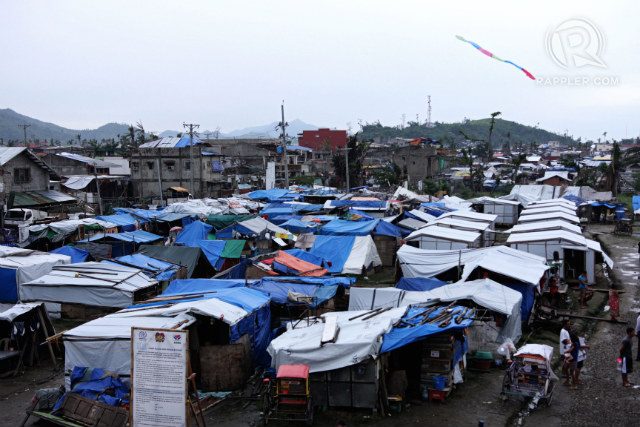SUMMARY
This is AI generated summarization, which may have errors. For context, always refer to the full article.

MANILA, Philippines – The delivery of assistance to victims of Super Typhoon Haiyan in the Philippines was hampered by poor coordination between local authorities and the international community, British aid groups said Tuesday, November 11.
A study of the aid delivery by 5 charities released in Manila a year after the storm struck, found there had been a lack of communication between international aid providers, their local counterparts and the government.
“We missed coordination, we missed an opportunity to work together as a team… we missed an opportunity to take advantage of the capacity that we have among ourselves,” said Joyce Lacker country manager of ActionAid, which co-authored the study with Oxfam, CAFOD, Christianaid and Tearfund.
Lacker blamed this partly on the unprecedented damage caused when Haiyan smashed into a giant stretch of the central Philippine islands on November 8 2013, bringing the strongest winds ever recorded on land, devastating whole towns and leaving 7,350 dead or missing.
Although foreign and local assistance was quickly on the scene, problems soon emerged, said representatives of local non-government organisations said at the launch of the report.
Local NGOs had difficulty meeting with the stringent reporting and accounting systems of the international groups while the government was overwhelmed as the typhoon had killed many of the rescuers trained to help with relief efforts from such disasters.
There were cases of duplication of efforts with large amounts of aid going to the same people while others were given nothing. This sparked “social tension” between people who had and had not received aid.
Despite these problems, the recovery from Haiyan had been relatively swift, David Carden, country director of the UN Office for the Coordination of Humanitarian Affairs (OCHA) said.
“There are always things that can go better,” he said.
The government must engage international aid groups, local communities and NGOs to determine their roles when responding to disasters, he said.
On Monday, the chief government overseer of the Haiyan rehabilitation efforts, Panfilo Lacson said that 20.3 billion pesos ($451 million) in aid had been provided by multilateral and bilateral sources and overseas non-government organisations for the post-typhoon relief effort. – Rappler.com
Add a comment
How does this make you feel?
There are no comments yet. Add your comment to start the conversation.